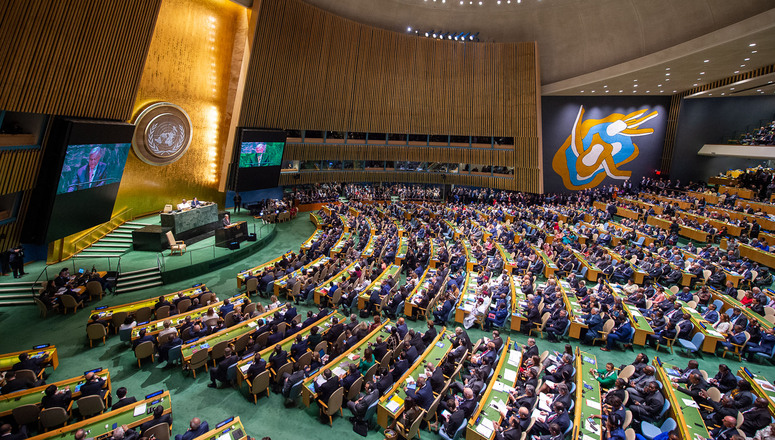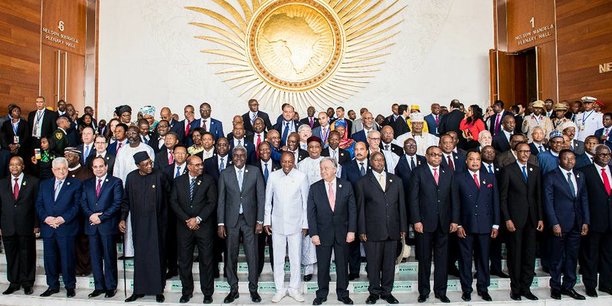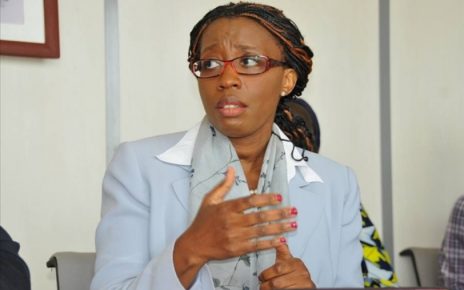
Source: AfriquInfos
London (© 2019 Afriquinfos) – The UN Under-Secretary-General and Executive Secretary of the Economic Commission for Africa has released a free forum in which she reports that the exploitation of the potential of technology and Data economy is essential to achieve the UN Sustainable Development Goals in Africa. She also had the Financial Times African Summit (FT Africa Summit) in London on October 14, 2019.
By Vera Songwe
Technology has broken down barriers and allowed millions of people to conquer their freedoms like no other invention has ever done.
Last month at the United Nations General Assembly meeting, 91 world leaders followed the speech of President Donald Trump criticizing China from inside this room, but hundreds of millions of people around the world have watched the same speech on their digital devices.
That said, the challenge for heads of state is to ensure that technology opens an era of prosperity for citizens around the world and not an era of domination by a small group, a scenario we know only too well.
This will only be achieved by improving data governance – the way information is collected and shared – and ensuring that all citizens have the same perception of the new data economy. access and control it.
Harnessing the potential of technology and the data economy is essential to achieving the UN Sustainable Development Goals in Africa, whether to foster development, accelerate prosperity or end poverty. However, if positive steps are not taken, Africa would still be at risk of falling further behind.
 The decisions that African leaders and politicians will take in the coming years on the adoption of the data economy will determine the extent of the benefits that the continent and its people can derive from it. Rather than worrying about looking for oil, Africa should work to build its data economy. Data is the most important, expensive, and precious commodity in the world today, the potential of which no society can afford to ignore.
The decisions that African leaders and politicians will take in the coming years on the adoption of the data economy will determine the extent of the benefits that the continent and its people can derive from it. Rather than worrying about looking for oil, Africa should work to build its data economy. Data is the most important, expensive, and precious commodity in the world today, the potential of which no society can afford to ignore.
The Brexit saga has shown Europe, if not the rest of the world, that integration is far better than disintegration. Asia continues to integrate and build a union with new trade agreements such as the Transatlantic Trade and Investment Partnership, and the MERCOSUR trade agreement between the EU and the South American bloc – Brazil, Argentina, Paraguay and Uruguay – was finally concluded after 20 years of negotiations. Trade and integration remain an important part of a global solution to building a prosperous world.
Africa is already playing a leading role in integration, with the recent adoption of the Agreement establishing the African Continental Free Trade Area. It must now do the same with the data debate. African countries can claim a new and more influential position in a changing world, at a time when the international community is collectively seeking to design a new multilateral architecture for data collaboration.
Africa already has the tools to cope with changing global trends, especially its young population whose information, data and innovations will be sought by all.
There are a number of steps that African policymakers can take to lead the data debate. They should make a smart bet on technology (as they did on trade), making it technology that drives policy, not the other way around. They can foster innovation among young Africans and stop being alarmist. They will have to set up a common body of intellectual property rights responsible for protecting the continent’s valuable assets.
The economy teaches us that monopolies are neither fair nor efficient; it is unlikely to be otherwise for data monopolies. Given the global nature of the data economy and the cross-border capabilities of collecting and exchanging data products and services, global institutions like the UN and its affiliates and the Bretton Woods institutions all have a role. central to play in the development of global policies that promote data harmonization and interoperability, while ensuring the collective interests of Africa.
But African leaders should learn from past trade agreements, take their place at the negotiating table and show initiative in global debates on electronic commerce and data.




